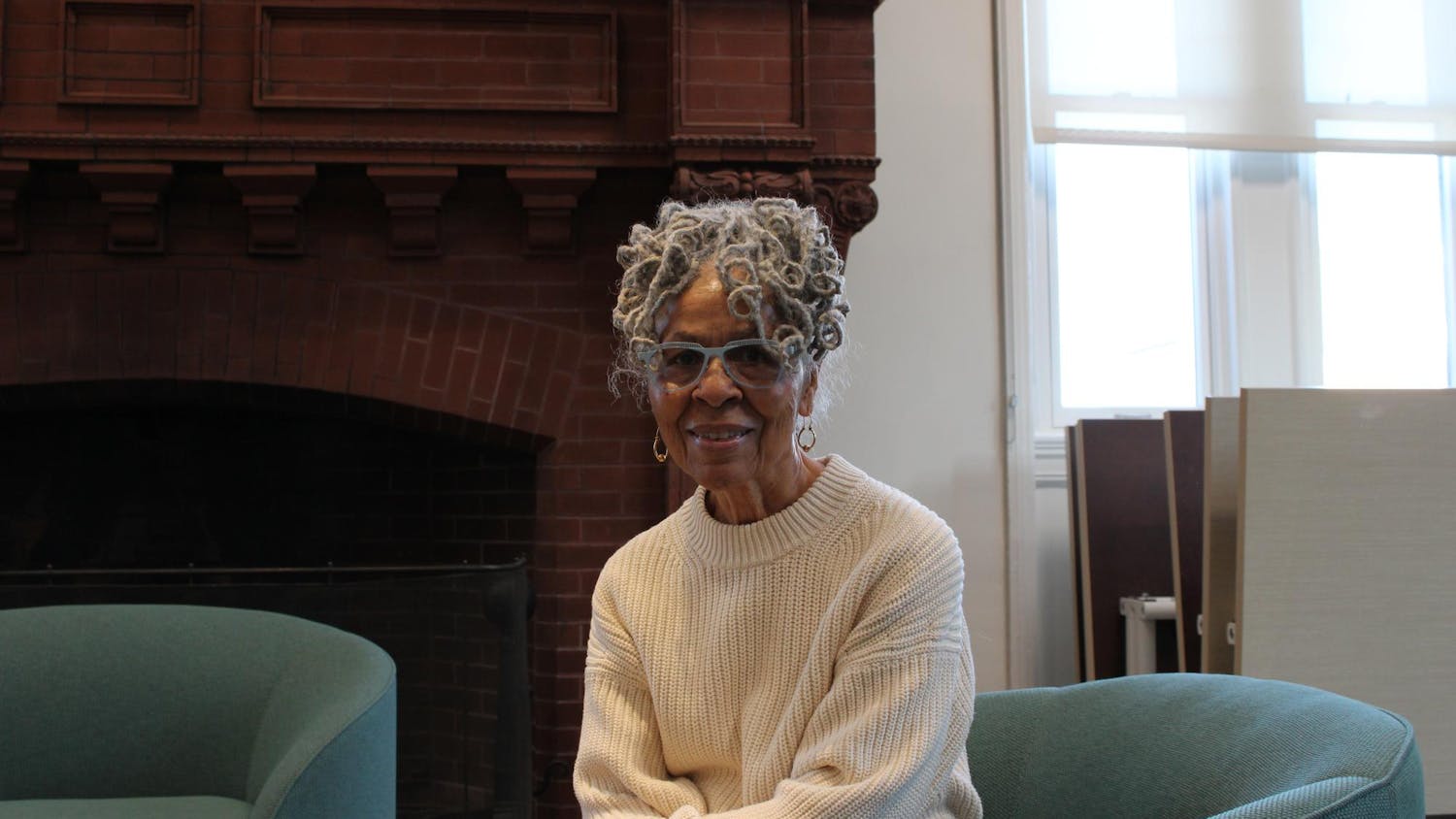As the sun sets on a week preserved for celebrating and protecting the Earth and environment, University researchers continue dedicating their energy toward this very aim, unearthing information on climate-related discourse and the climate change countermovement and planting their findings to spur future action.
In addition to the work of Visiting Professor of Environment and Society Robert Brulle, Cartie Werthman’s ’21 and Cole Triedman’s ’21 research featured in the first part of this series,. Professor of Environmental Studies, Environment and Society and Sociology J. Timmons Roberts and other University students have added to this foundational research.
Social media messages: building a base through bots
Climate-related discussions on social media, whether promoting or countering climate change, are not all prompted by live people. Some are being partly automated through social media bots, according to research from Thomas Marlow GS, a sociology graduate student and affiliate of the Institute at Brown for Environment and Society. Marlow has been working with Roberts to investigate the role of Twitter in this discourse.
A collection of approximately 6.8 million tweets sent in the month following the 2017 announcement that the United States may withdraw from the Paris Agreement for climate action were part of Marlow’s ongoing study. “Of all tweets about global warming, climate change or (the Paris Agreement), regardless of the content, … roughly a quarter (of those) on a given, normal day were produced by a bot,” Marlow said. Some bots are simplistic with basic capabilities of retweeting other messages, whereas others create new messages and are harder to identify, he added.
The researchers selected messages containing versions of the phrases “Paris Climate Agreement,” “climate change” or “global warming” and further divided them into specific categories using structural topic modeling. The tweets ranged from retweets of the withdrawal and statements denying climate change to messages that advocated for support of the agreement and tagged senators to get their attention. With the help of a botometer — a system that evaluates the frequency at which a user is tweeting and thereby determines the likelihood that the source is a bot — the researchers found that 25 percent of this subset of tweets on a regular day came from bots. “Even though they weren’t anywhere near (the) majority of users, they were way outperforming themselves,” Marlow said.
Looking ahead, Marlow plans to compare the tweets obtained from this time period to those sent around the 2015 announcement of the Paris Agreement. He also hopes to investigate other social media platforms, including Reddit, and determine bots’ impact on the political polarization surrounding climate change, which can lend itself to further political action. “The more we know, the more we can envision ways of dealing with this problem,” Marlow said.
Lobbies, testimonies, Rhode Island, beyond
Bringing their research closer to the Climate and Development Lab’s home, Roberts and several current and former students, including Galen Hall ’20, a staff columnist at The Herald, and Trevor Culhane ’15, have collected part of their data at the Rhode Island State House. Once again employing structural topic modeling, the researchers extracted public testimonies from committee hearings that pertained to climate change.
Their studies have also indicated that “utilities once again are the biggest players, the biggest spenders on lobbying. Year in and year out, they’re spending hundreds of thousands of dollars,” Roberts said.
Roberts’ prior study published in September 2019 targeted decarbonization, or lowering the carbon footprint, in Rhode Island. The study indicated that the state’s emissions were much higher than “what the state is reporting,” when taking into account the methane released from leaking natural gas that “is about 85, 86 percent worse than carbon dioxide at harming the atmosphere,” he said.
But if Rhode Island were to double its electricity use and production by using available renewable resources, in 10 to 30 years “we could reduce our emissions to 80 percent” while keeping the transition “fairly affordable,” Roberts added. “If we put a bunch of money now and spend it well, we could save tons of money later and get ourselves entirely off of fossil fuel.”
Nevertheless, to figure out how to best transition industries to renewable energy, researchers must first fill the knowledge gap on how these companies are getting and using energy resources, he added.
The researchers are currently expanding these investigations in partnership with New England’s progressive coalitions, “combining climate and social equity goals and development to economic development,” with more information to come out in June. They have analyzed states’ clean energy programs and are compiling briefs on this year’s primary election candidates.
This aspect of climate change has been prioritized by a “small but very tight-knit group of scholars” and comprehensive data can therefore be hard to come by, Yale Associate Professor of Sociology Justin Farrell wrote in an email to The Herald. Farrell has studied environment, policy and politics outside of the studies featured in this series. He added that Brown researchers’ and students’ creative methods of gathering data have enabled them to make “significant advancements in attempts to rigorously (study) efforts to obstruct climate policy.”
“The important thing is that at Brown – which has become the leading place to study climate obstruction ... faculty scholars like Dr. Timmons Roberts and Dr. Robert Brulle are tackling this issue from multiple angles,” Farrell wrote.
Although the COVID-19 pandemic remains a pressing, acute concern at this time, research indicates that climate change has factored into this problem as well, accentuating its consequences. Findings from Harvard University published this month related a small rise in particulate matter, a form of air pollution, to a 15 percent increase in death from COVID-19, according to the study.
It “was incredible that (the researchers) were able to pull together that data so quickly and that the results were so striking. It’s made a difference because I feel like this is a very hard time to get people’s attention to climate change or longer-term issues,” Roberts said. But this research “makes it clear that there is no difference and that (climate change and COVID-19) are the same crisis.”
“Earth Day 2020 should be seen as a wakeup call,” Roberts said. “This is about politics. This is about understanding your opposition. If you wish to make positive change, you have to really understand what you’re up against and what are effective methods to influence public policy in America and to make an enduring impact.”

ADVERTISEMENT




